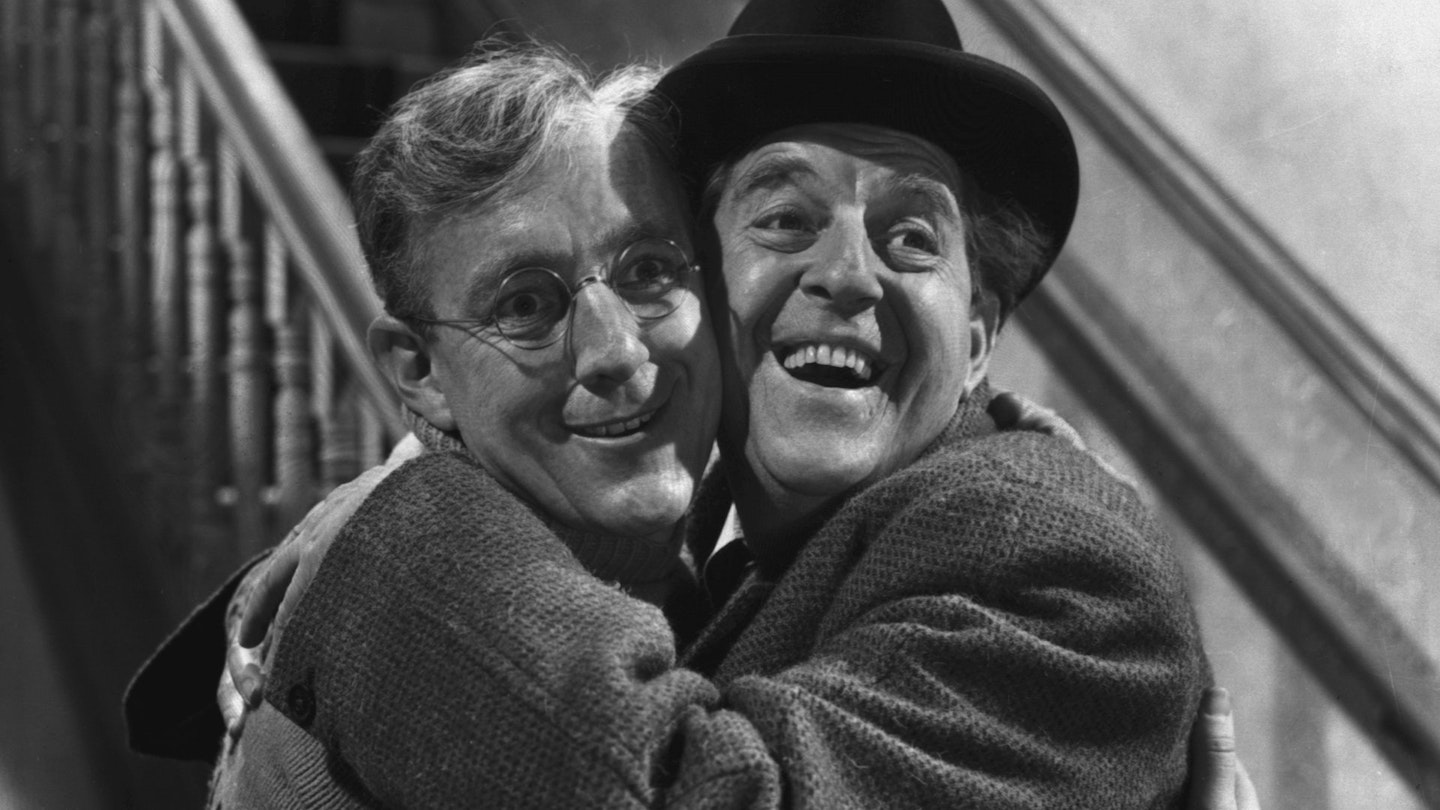By 1951, Ealing had established a reputation for the comedies with which its name would eventually become synonymous. However, prompted by a combination of Britain's proud documentary heritage and the current fashion for Italian neo-realism, the studio also felt it had a responsibility to examine the contemporary social scene. But rather than focus on downbeat domestic dramas (which were too close to home for the majority of patrons in those grim post-war times), the front office opted to explore how economic adversity had driven so many youths and returning war heroes to crime and, increasingly, violent crime at that.
The decision was partly prompted by the success of The Blue Lamp (1950), in which Dirk Bogarde's terrified tearaway murdered PC Jack Warner (who would miraculously revive to spend 21 years playing the same character in the BBC's legendary series, Dixon Of Dock Green). Indeed, T.E.B. Clarke was working on a similarly gritty crime story for director, Basil Dearden, when he got the idea for The Lavender Hill Mob.
Clearly uninspired by Pool Of London (1951)'s humdrum account of a doomed robbery, Clarke concocted the tale of the timid, but fastidious bank clerk who executes the perfect bullion heist and smuggles the gold out of the country in the form of seemingly-worthless tourist trinkets.
Studio boss Michael Balcon was reportedly furious when Clarke suggested this new direction. But a cursory perusal of the treatment persuaded him to team Clarke with Charles Crichton, who had directed Ealing's first true "comedy", Hue And Cry, in 1947.
Eleven full drafts of the screenplay and four revised endings were submitted, but even then Crichton shaved 27 minutes off the original running time to bring it in at a compact 78 minutes. Keen to ensure the authenticity of his caper, Clarke consulted the Bank Of England on how best to breach its security and a specially-convened committee obligingly came up with the bare bones of Holland's ingenious plan.
"Dutch" Holland was played with deceptively innocuous self-assurance by Alec Guinness, who was returning to Ealing for the first time since his triumph in Kind Hearts And Coronets (1949). He would be joined in the gang by Stanley Holloway as Pendlebury, the proprietor of the souvenir company that would transform the ingots into Eiffel Towers, and Sid James and Alfie Bass, as the Cockney scamps who would provide the gentlemanly outlaws with a little professional expertise.
While nowhere near as subversive as Whisky Galore! (1949), the film was still scathing in its depiction of the forces of law and order. Having demonstrated I the technological and forensic I armoury at the police's disposal, (Clarke and Crichton delighted in debunking its efficacy. Rather I than facilitate the pursuit of | villains, in-car radios are shown to be vulnerable to sabotage and capable of causing utter chaos. Similarly, bobbies on the beat are resented as jolly fools, who either ihone in with tall stories about top hats or are too preoccupied with singing Old Macdonald Had A Farm to realise the suspects are under their very nose.
But it's not just the law that is subject to ridicule. Just as William Rose would later reveal he had lampooned Clement Attlee's government in The Ladykillers (1955), a case can be made for Clarke having taken a pop at them here, too. Like Attlee and his cabinet colleagues, Guinness and Holloway's characters are clearly a couple of rungs up the social ladder from James and Bass' working crooks. Thus, the blind faith the latter two place in their superiors to fence the loot in Paris and still return with their proceeds smacks of the confidence voters placed in Labour in 1945. But Alfie, Sid and the electorate were all betrayed by their implicitly trusted betters.
Crichton also found room for a dig at Britain's most famous cinematic export. As Guinness and Holloway hurtle down the steps of the Eiffel Tower in pursuit of a lift full of schoolgirls carrying their dodgy golden replicas, it's impossible not to be reminded of one of Alfred Hitchcock's famous landmark set-pieces. Indeed, the action becomes genuinely disquieting as Holloway's hat and coat float like a plunging figure from the twisting staircase, until Crichton deflates the incident by giving both men the giggles.
This enjoyment of their villainy is a key feature of the film's attitude towards morality. It's clear from the bookend sequences in South America that Guinness has been having a high old time (cavorting with a young Audrey Hepburn, no less). There's a trenchant satirical irony in the fact that his ill-gotten gains have helped him become a pillar of the ex-pat community. It's this willingness to seize on any route away from the all-pervading austerity of victory (vital also to 1949's Passport To Pimlico) and the disregard for authority that has ensured the Lavender Hill Mob's place in history.
